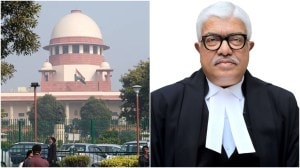New tariff norms — NTPC to lose over Rs 1600 cr yearly
DEC 28: Rejecting a review petition by National Thermal Power Corporation, Central Electricity Regulatory Commission (CERC) has decided to...

DEC 28: Rejecting a review petition by National Thermal Power Corporation, Central Electricity Regulatory Commission (CERC) has decided to implement new tariff norms from April 2001 which would cause NTPC a cash loss of upto Rs. 1600 crore annually.
Commenting on the CERC order of December 21, NTPC chairman and managing director C P Jain told PTI that the Corporation would stand to lose between Rs 1400 crore to Rs 1600 crore due to changed norms for disincentives and incentives along with curtailed provisions for depreciation.
Asked about NTPC’s options, Jain said "we are studying the order and its impact. We will explore necessary options."
The Commission, headed by S L Rao, said in its order that the review petition of NTPC was disposed and the "stay on implementation of availability based tariff order shall stand vacated."
Detailing the revised dates for implementation of the order beginning April 1, 2001, the Commission said that the crucial date for switchover for calculation for incentive shall be reckoned from April 1, 2001 instead of April last year.
NTPC would suffer losses upto Rs 17,000 crore over the next ten years in its internal generation of resources from the earlier projected level of Rs 24,000 crore, Jain said adding this would severely impact the Corporation’s capacity addition target of 20,000 mw by 2012.
Against the present norm of 68.49 per cent plant load-factor for recovery of full fixed costs, CERC said "we are convinced that the immediate fixation of target availability at 80 per cent for recovery of full capacity charges would give an impetus to generation of electricity in the country."
Jain said that the increased benchmark for equivalent availability (actual generation plus backing down) would affect the corporation’s profitability by Rs 700 crore at the performance level of 1999-2000.
"Even after taking into account the relaxation proposed in specific cases the profits will come down by at least Rs 500 crore," he said.
CERC, however, said in its order that "commission could increase the target availability to 85 per cent subsequently at any time if the experience dictates such a requirement. To that extent, our original order (of January 4, 2000) stands modified."
In its earlier order, the Commission had stipulated the avilability based tariff at 80 per cent norms for a period of three years from April 1, 2000 after which the ABT tariff norm would have been upped to 85 per cent.
In its review petition, NTPC had demanded level playing field vis-a-vis private producers saying "in accordance with government of India notification dated 30-3-1992 applicable to IPPs (independent power producers), full fixed charges are recoverable at generation level of 6000 hours/kw/year i.e. at PLF of 68.49 per cent."
Jain said that curtailed provision for depreciation under the new tariff mechanism of CERC would affect cash flow of the corporation to the extent of Rs 900 crore annually.
This along with a loss of upto Rs 700 crore in profitability would hurt the corporation’s finances and future expansion plans badly, he said.
As per the new mechanism, depreciation provisions for operating plants have been reduced from 7.6 per cent to 3.6 per cent for the purpose of computation of tariff, Jain said adding that provisioning of advance depreciation (for new plants) was also meagre.
The commission also imposed a development surcharge of five per cent on every bill for fixed charge for NTPC.
Commenting on this, Jain said that this would amount to about Rs 325 crore but it would lead to additional income tax liability of Rs 125 crore on the corporation.
This along with incentive depreciation norms is estimated to have a cumulative impact of about Rs. 1700 crore on the finances of NTPC.
As per the revised incentive norms, the Commission capped the incentive for NTPC for improved performance to 21.5 paise per KW hour on generation beyond 77 per cent PLF. However, CERC allowed the recovery of only 50 per cent of the fixed cost/KWH as incentive.
Jain said that earlier the corporation was getting the incentive beyond 68.5 per PLF and regretted that corporation’s incentive has been pegged on a very high level of performance which would just mean that "we are being penalised for better performance."
Resenting the NTPC plea against imposition of penalty and gaming charges, CERC said "we feel that the success of ABT rests squarely on the prevention of misdeclaration and gaming possibility.
"To ensure this, deterrent penalties would require to be provided. Without this, we have apprehension that the grid discipline cannot be effectively enforced," it said.
NTPC had sought review of this saying the proposal to impose penalty/gaming charges was unreasonable and arbitary and that it would seriously affect the free market development proposed for the sale of electricity.
Asked about the penalty provisions or disincentive scheme, Jain said they were earlier penalised for the performance below 62 per cent PLF (as 5.5 per cent was taken as deemed generation out of stipulated norm of 68.5 per cent PLF).
Now the disincentives clauses would be invoked at a performance below 77 per cent of PLF, he said, pointing out that while incentives have been curtailed disincentive norms have been made more stringent.





- 01
- 02
- 03
- 04
- 05


























